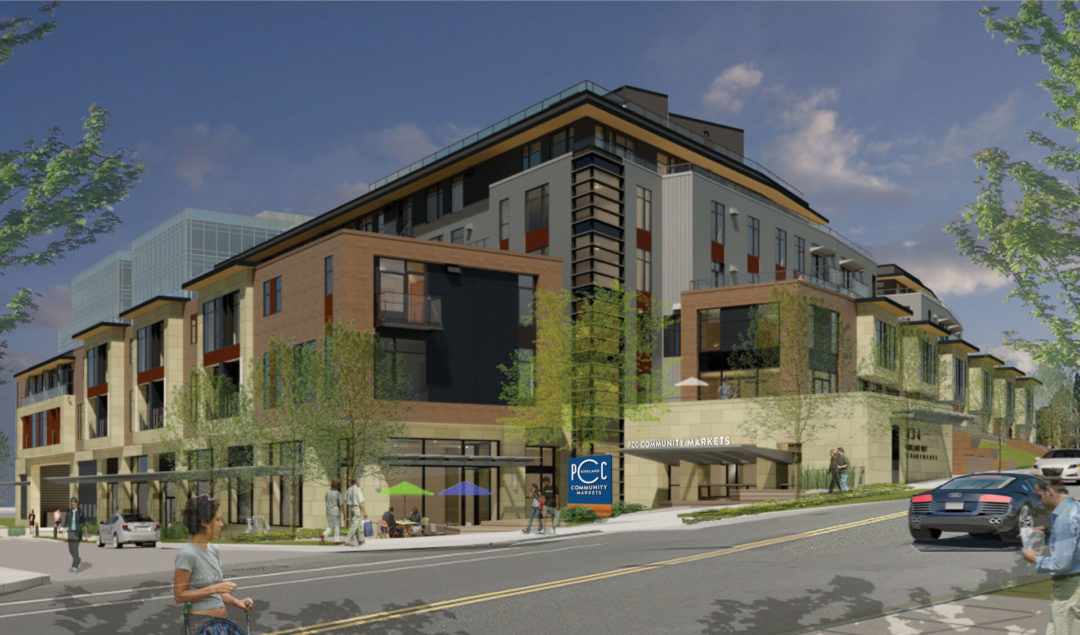The new store will be located at 430 Kirkland Way, less than a mile away from the original location, and will have approximately 19,000 square feet—a 30% increase from its old location. It has been sustainably built with intent to pursue Living Building Challenge (LBC) Petal Certification, which involved taking steps including:
- Using recycled materials and repurposed equipment for store fixtures
- Tripling the number of windows, in order to bring in more natural daylight and reduce indoor lighting energy use
- Using a carbon dioxide refrigeration system, which boasts a global warming potential 3,000 times less than the synthetic refrigerants used in most grocery stores
“Our team is so excited to be moving just down the road to our new location in downtown Kirkland, and to be able to share our beautiful store with new and longtime members and shoppers, alike,” said Mike Stampalia, Kirkland PCC Store Director. “We have been bringing local, organic and healthy foods to the Kirkland community for over 40 years and now we will be able to offer even more choices at our new location. This will be a special place located right next to the Kirkland Performing Arts Center, Transit Center, swimming pool and playfields that will allow us to serve Kirkland for another 40-plus years to come.”
Related: PCC Awards $35k to 7 Nonprofits PCC Announces Grant Program Recipients, Art Installations in 2 New Stores Two New PCC Locations Achieve Petal Certification
Kirkland PCC has been working with Kirkland Hopelink and Community Resource Network (CRN) for more than 15 years through the grocer’s Food Bank Program. Since PCC began tracking its contributions in 2018, Kirkland PCC has donated approximately 400,000 meals to Kirkland Hopelink and CRN.“PCC has been an amazing partner in helping us achieve our goals to support our neighbors in Kirkland,” said Debbie Fought, CRN volunteer. “It’s through the support from PCC and others in our community that we are able to distribute food to those who face high barriers to acquiring safe and healthy food, including isolated senior citizens, differently abled individuals, immigrant families and people experiencing immediate crisis.”









